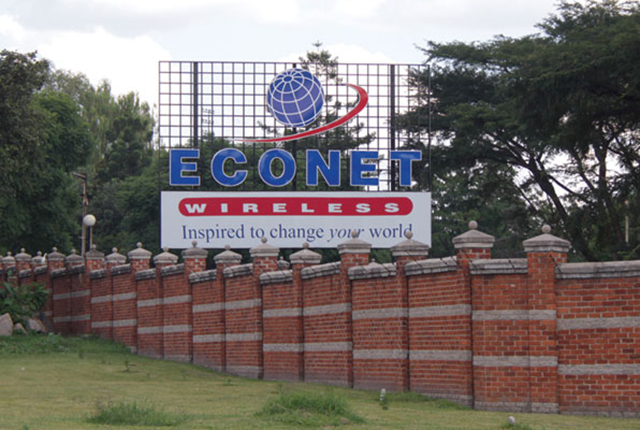Econet share flat after increase in data price

Enacy Mapakame Bulls and Bears—
Zimbabweans yesterday woke up to an increase in data charges by mobile phone operators.A dollar could buy 250 megabytes of data, under promotions, but the situation changed overnight with the amount now enough to purchase just 10 megabytes. One could be tempted to read this as a sign of things to come in 2017.As if in response to this development, Zimbabwe Stock Exchange listed telecoms firm Econet remained flat at 30 cents a share as investors seemed to digest the implications of the new data pricing regime.
Industry regulator, the Postal and Telecommunications Regulatory Authority of Zimbabwe last week set floor prices for voice and data services. The regulator set voices services at 12 cents per minute and data at 2 cents a megabyte with effect from January 9, 2017.
The new tariffs were meant to address the “underpricing” of data and voice services.
In its half year to August 31, 2016, Econet registered thinning revenues but achieved a double digit growth in data, while voice revenues continued to dip.
Econet has however remained a leading value contributor in the last five trading sessions with the mainstream Industrials Index rising a marginal 0,54 percent to 145,97 from 145,18.
The upward movement was sustained by heavy cap counters inclusive of Delta, Old Mutual, Barclays and Seed Co among others.
A total turnover of $1,971 million was achieved from the sale of over 5,6 million shares that traded in the five days under review.
Trading has mainly remained subdued as investors are still assessing their portfolios in a week that most businesses and industry reopened after the festive break.
Foreign sales dominated activity as foreign investors exit the market on economic uncertainty.
While the economy may hinge its recovery on anticipated improved agriculture production, mining and the manufacturing sector, economists have also argued its ability to grow will also be based on Government’s ability to clear its huge debt overhang of over $10 billion.
This will also open fresh lines of credit and help retool industry. In 2016, the country missed the Lima agreement plans although significant strides were made with the International Monetary Fund to settle its overdue financial obligations and qualify for fresh lines of credit.
According to the World Bank in the “Weak investments in uncertain times” report, Zimbabwe’s economy is projected to grow by 3,8 percent this year and 3,4 percent in 2018 and 2019.
The biggest company by market capitalisation, Delta recorded a 2,37 percent increase to 91,59 cents from 89,47 cents. The beverages maker is currently trading under a cautionary following an announcement by Coca Cola Company of its intentions to terminate a bottler’s agreement last year.
Insurance giant Old Mutual inched up 0,14 percent to settle at $3,50. Seed manufacturer, Seedco remained stable at $1,01.
Barclays rose 3,1 percent to 3,3 cents. Financial institutions, whose year end is in December and therefore now preparing their financial results are expected to remain under pressure due to liquidity challenges that started last year.
Cement maker PPC and TSL remained flat at 55 cents and 18 cents respectively despite their significant contribution to volumes in the five days under review.
Although TSL has largely remained subdued, market watchers anticipate improved earnings on the back of improved tobacco production this season.
The number of tobacco growers for the 2016/17 season grew 58 percent to 14 231 this week compared to same period last year.
On the negative side were meat processor, Colcom that dropped 5,4 percent of value to 35 cents. Hospitality group Meikles, eased 7,6 percent to 12 cents while Dairibord was 16 percent weaker to 5 cents.
Other losses were recorded in OK Zimbabwe which fell 4 percent to 7,1 cents.
In the five days under review, the less active resources index maintained previous week’s levels of 58,51 on thin trading and fluctuating prices of commodities.
All the four resources counters Bindura, Falgold, Hwange and RioZim remained unchanged at 4 cents, 0,6 cents, 3 cents and 30 cents respectively.
The World Bank projects commodity exporters such as Zimbabwe will continue to struggle to adjust to low commodity prices with activity expanding at a moderate pace. Recovery in the Sub Sahara region will be moderate as the region adjusts to lower prices.
According to the global apex bank, overall, Sub Saharan Africa, with the exception of South Africa will grow by an average 3,5 percent this year and 4,2 percent in 2018 as commodity prices stabilise.










Comments